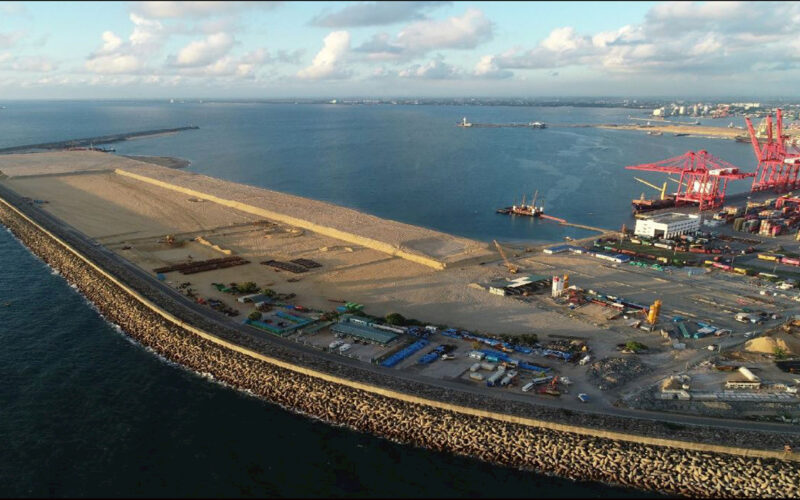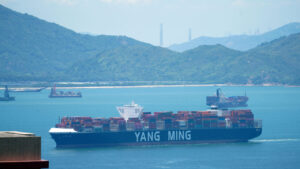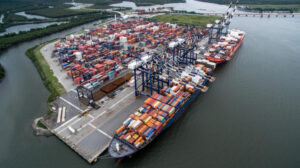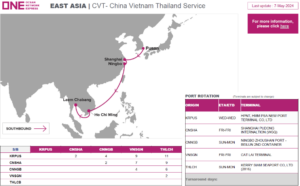The Port of Colombo (POC) has enlisted ABB to provide automated stacking cranes to enhance the operational efficiency of its new large terminals.
The port is currently building two large automated terminals in Sri Lanka, aiming to cater to both East-West and regional container traffic and become a leading transshipment hub in the Indian Ocean.
According to ABB, transshipment volumes accounted for more than 80 per cent of the 6.86 million TEU handled by the Port of Colombo in 2022, propelling it to the 23rd position in the world container port rankings.
Despite this achievement, the port faces difficulties from regional expansion, notably in India, which may have an influence on its aspirations owing to full capacity operation.
To solve this, two new container terminals are being built in quick succession. The port’s objective is to attract roughly 250 ships crossing the Indian Ocean daily, expanding capacity to 24 million TEU by 2040, with a deep draught of 20 metres to handle the largest container ships.
READ: Port of Colombo operations return to normal
Colombo’s new East Container Terminal (ECT), developed by Sri Lanka Ports Authority (SLPA), aims to expand port capacity to around 14 million TEU.
When up and running by the second quarter of 2024, first phase developments will release around 1.8 million TEU of capacity, rising to 3.6 million TEU in 2025.
Larger still is the new West Container Terminal (WCT) where phase 1 is developed by Colombo West International Terminal – a joint venture between India’s Adani International Port Holdings (Subsidiary of Adani Ports & Special Economic Zone Limited) (51 per cent), Sri Lanka’s John Keells Holdings (34 per cent) and Sri Lanka Port Authority (15 per cent).
Conceived to add a further 3.2 million TEU of capacity, its first phase will also be up and running along 600 meters of quay by early 2025.
SLPA has hired ABB to deliver systems for 40 fully automated end-loading stacking cranes at ECT. In this terminal, straddle carriers carry containers between the quay crane and the intermediary transfer zone for pickup by the yard crane, in what ABB calls “perpendicular automation.”
Meanwhile, Colombo West International Terminal has chosen ABB technology for WCT-1, specifically for 18 automated stacking cranes and eight ship-to-shore (STS) cranes with remote control.
In this case, box transfers to and from the shore crane will be accomplished using a terminal tractor-chassis combination, with loads drawing up alongside a cantilever yard crane for stacking in a ‘parallel automation’ arrangement.
READ: MSC America calls at the Port of Colombo for first time
Electrical stacking cranes that are automated and rail-mounted were chosen for their energy and space efficiency, while crane automation and remote shore-side crane operations provide further safety benefits.
Currently, over 1,000 ABB-automated stacking cranes reportedly lift and stack containers at over 30 terminals globally, in end-loaded and cantilever configurations, while connecting with numerous terminal operating systems.
Jampala Raghuram, Regional Manager Sales, ABB Ports, said: “Container operations at Colombo are acknowledged as the most efficient in the region.
“The fact that East Container Terminal and CWIT will be the island’s first facilities to feature automated cranes indicates that state-of-the-art handling technology is seen as critical to sustaining that reputation into the future.”
Four months later, Hamburger Hafen und Logistik AG (HHLA) and ABB Ltd. partnered to increase efficiency in the long-term operation of big automated stacking crane (ASC) systems.









